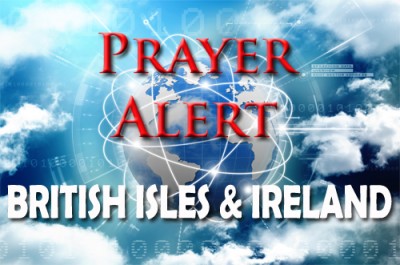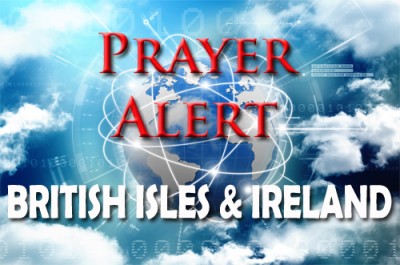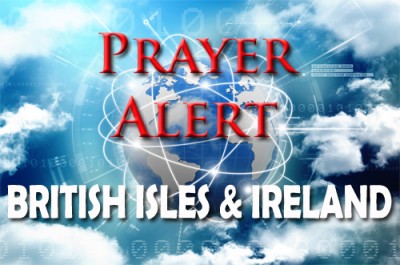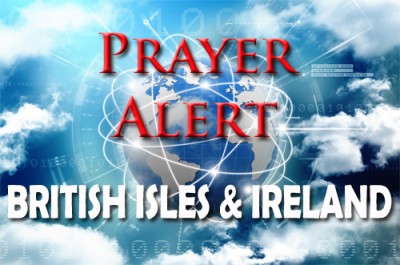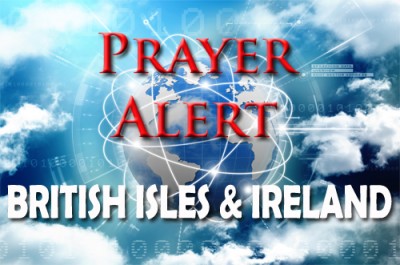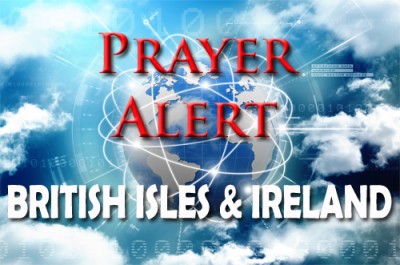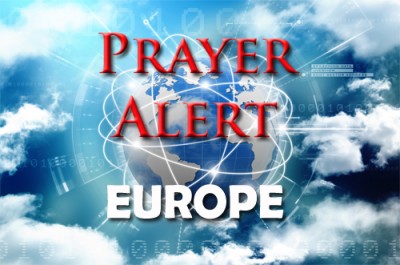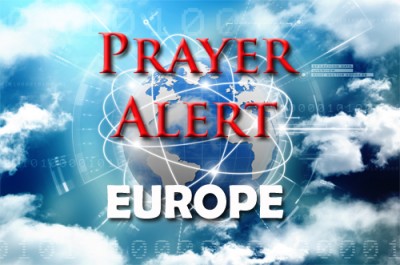Praying for the EU and the referendum
17 Jun 2016This week’s prayer points from the WPC’s 'Every Vote Counts' prayer guide are: Ask God to lead all who are undecided how to vote (Ps. 27:14). For the release of a new hunger for prayer for our nation (Is.62:6). For blessings and wisdom to guide the peoples in Northern Ireland (Pr.3:5-6). For the referendum decision to bless future generations (Lk.1:50). For strengthening unity among the peoples across the UK nations (Ps.133). For truth in all final speeches (Ja.1:5). Pray for God’s protection for every voting station and around our borders (Ps.121:7). Ask God to shape political leaders’ decisions during and after Thursday. (Ro.13:1). We declare Jesus is Lord over the decision taken across the UK (Lam.5:19). Pray for peace and stability throughout our nation and continent (Ps.72:18-19). Pray for Spain, Sweden, Switzerland, Russia, San Marino, Montenegro, Netherlands, Norway, Poland, Portugal, Romania, Serbia, Slovakia, and Slovenia to approach God’s throne of grace.
Archbishop on homophobia
17 Jun 2016The Archbishop of York appeared on Piers Morgan’s ITV show to discuss the referendum, but the presenter changed the topic to the church's views on gay rights following the attack in Orlando. Dr Sentamu refuses to bless gay marriage but urges Christians to speak out in support of persecuted LGBT people. Piers asked, ‘What would you say if I told you that because of the colour of your skin, you can only have a civil partnership marriage?’ He replied, ‘People say that sexuality is equal in terms of argument to slavery, no it's not. Some of my relations actually died on those ships. Slavery was a very wrong thing. I have many gay friends, they see me as someone who wants to protect them from homophobia. Not supporting same-sex marriage doesn't equal homophobia.’ His comments at the same interview were inaccurately reported in the ‘Pink News’. They reported, ‘Archbishop John Sentamu says Homosexuality is not a sin.’ See
Call for drugs to be decriminalised
17 Jun 2016A report by the Royal Society for Public Health and the Faculty of Public Health said the Government's approach to a ‘drugs policy’ had failed, and there should be a greater focus on treatment and education. The Home Office defended its record, saying that drug misuse had declined over the past 10 years. The report said criminal sanctions failed to deter illegal drug use, undermined people's life chances, and could act as a barrier to addicts coming forward for help. It said the UK should adopt the Portuguese system under which people caught using drugs were offered treatment and support rather than being punished. However, dealers and suppliers would still be prosecuted. The report also suggested that drugs education should be made mandatory, and responsibility for drugs policy moved from the Home Office to the Department of Health. Those who misuse drugs are in need of treatment and support - not criminals in need of punishment.
Special needs units - disabled children
17 Jun 2016Plans to shake up special educational needs funding for people with disabilities could see special units close. Cuts from £10,000 to £6,000 a year would be ‘disastrous’ and would not address the wide disparity in funding for children with similar needs. The National Association of Head Teachers (NAHT) said that the proposals do not address the so-called ‘top-up’ funding for children with very complex needs, where there are variabilities in funding levels for children with very similar needs (£2,000 of education funding in one local authority but £20,000 in another). The Department of Education needs to develop parameters and controls to ensure that funding is fairly distributed within local authorities. Recently, a primary school excluded thirty disabled children. Tory councillor John Lines has claimed that the 'unusually high' exclusion rate was part of a ploy to improve behaviour figures in a 'rush to become an academy'. See:
Proposal for Holloway women's centre
17 Jun 2016The Prison Reform Trust has proposed the establishment of a women’s centre on the site of the existing visitors’ centre at HMP Holloway, which is due to close later this month. Last December the trust wrote to the Secretary of State for Justice, following his announcement of Holloway’s closure, with a proposal to work with strategic partners to adapt the visitors’ centre (a purpose-built space refurbished by the Tudor Trust) into a women’s centre. Michael Gove confirmed at a Justice Committee meeting in March that the proposal was ‘a good idea’ and was under consideration by the Ministry of Justice. He has not yet acted to provide much-needed services for vulnerable women and a proper sentencing option for north and east London courts. Pray for resources to provide safe housing, mental health and addiction services, debt counselling, employment training and a crèche.
Magna Carta anniversary
17 Jun 2016This week, on the anniversary of the Magna Carta (15 June), we can remember the words signed by King John that formed its first clause, ‘that for us and our heirs in perpetuity, the church shall be free, and shall have its rights in full and its liberties intact’. Over the referendum we can pray for our nation to rediscover our God-given identity and purpose, and be positioned for maximum influence in the days ahead. Jesus gave his Church the great commission, so that we can decree and declare over this land ‘freedom to the Church to fulfil its call to preach the gospel, heal the sick, set the captives free and to bring in the Kingdom to these nations.’ We praise and thank God for the freedoms which, based on His word, have been our inheritance, encompassed in our laws, and impacted the world.
France: Euro 2016
17 Jun 2016Football fans are clashing with each other and the French police. People are being arrested, hospitalised, and some sent home after continued brawling in and around Marseille and Lille. Hundreds of French riot police have been charging groups amid chaotic scenes. French authorities have drafted in extra police and emergency services to swell their numbers to 4,000. Uefa’s executive board has warned England and Russia that they could be thrown out of the tournament if there are repeats of the violence in Marseille where England fans clashed with police, locals and 150 highly-organised Russians, resulting in several serious injuries and one fan in a critical condition. Police used teargas to break up big groups on streets dotted with cafes and apartment buildings. A French family was seen coughing and wiping their eyes as they struggled with the lock to their apartment block.
Europe: answers to prayer
17 Jun 2016There are positive and encouraging developments in the Church as evangelicals grow in strength, confidence and a sense of identity in most countries. This is demonstrated by the increase in an evangelical presence in mainline churches, which are otherwise declining; the stability of conservative denominations; and the arrival of dynamic new evangelical and charismatic fellowships and networks onto the Church scene. All of this is modest compared to great gains in Asia and Africa, but is a light in an otherwise bleak European religious landscape. There has been an impact of evangelical and charismatic movements within the mainline confessions. The Church of England is significantly touched by renewal, by evangelical activism, and especially by discipleship courses. We have also seen the proliferation of new prayer movements, the emergence of pan-European ministries such as the European Evangelical Alliance, and large European conferences. There is a growing ecumenism of the faithful that accepts differences and recognises the need for spiritual unity and cooperation in the face of increasing marginalisation.
